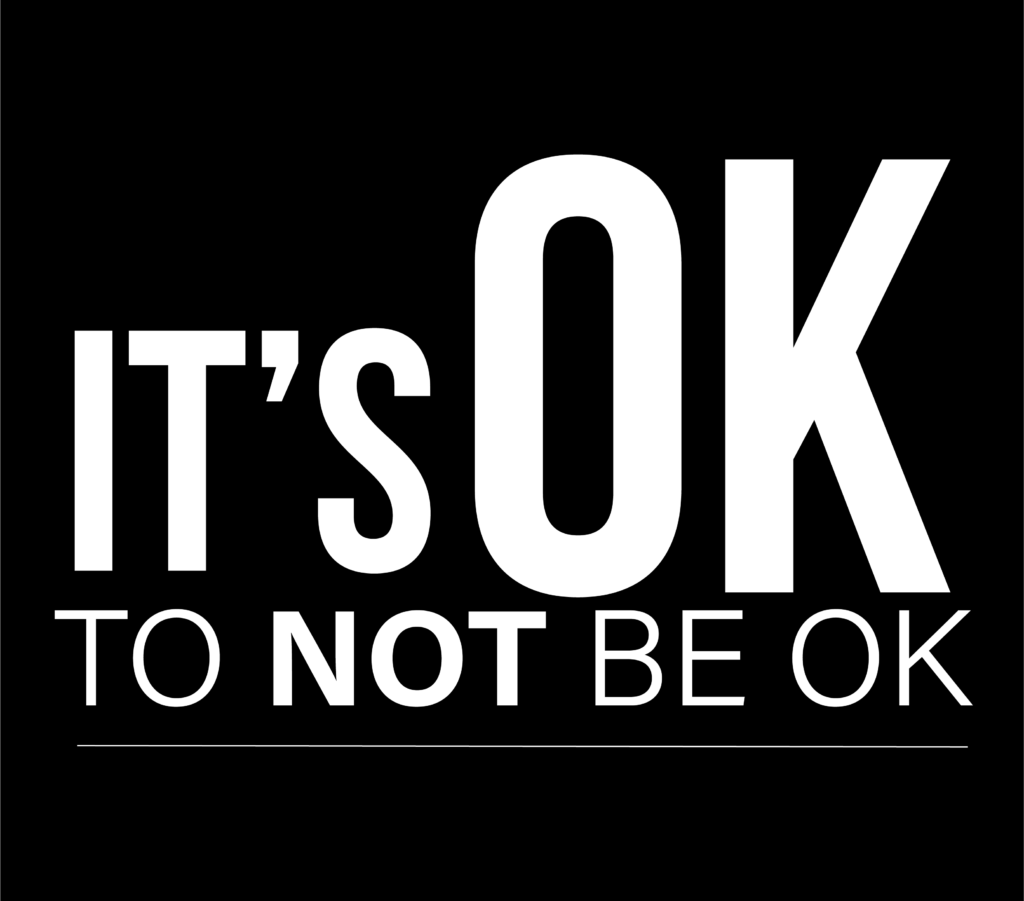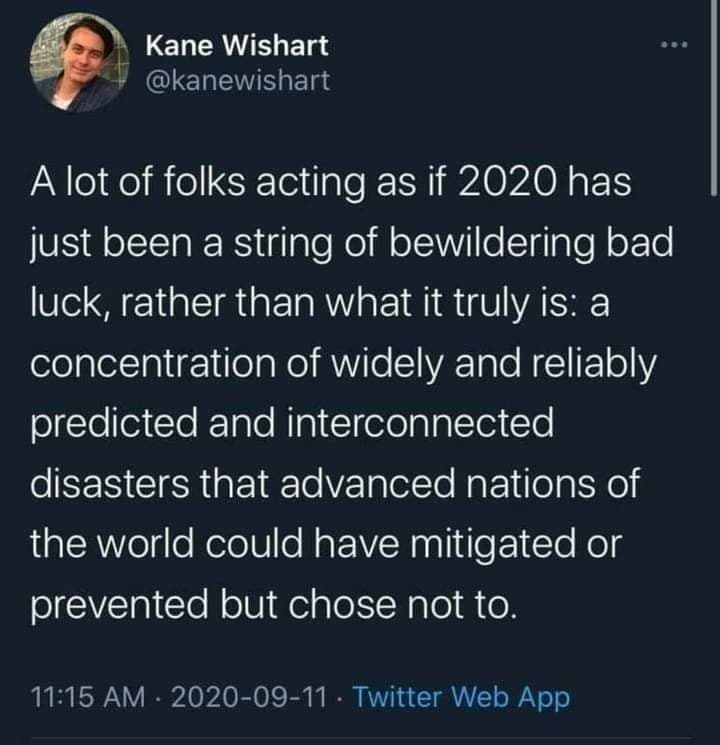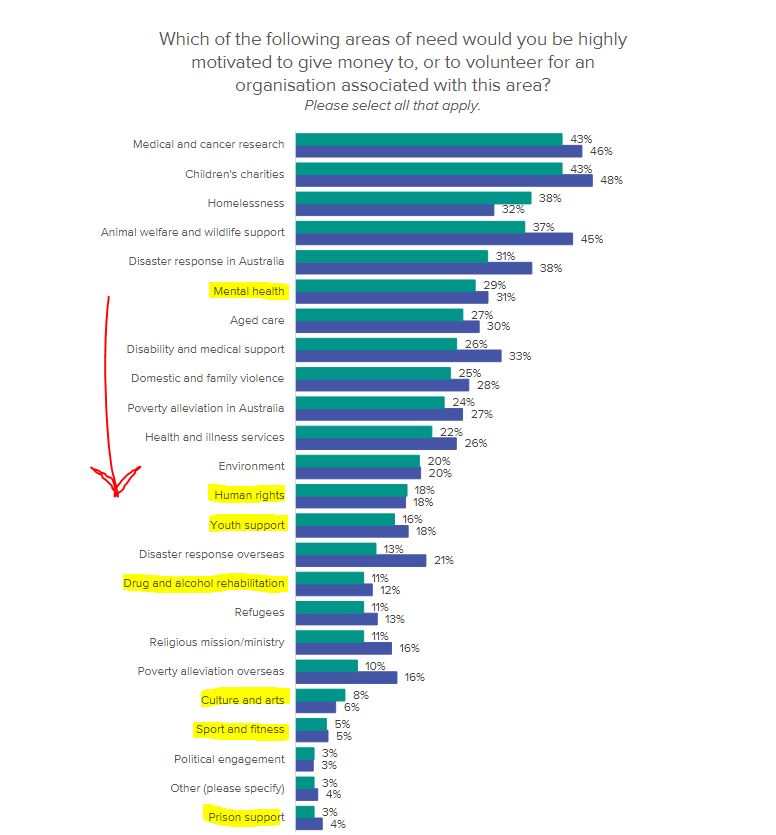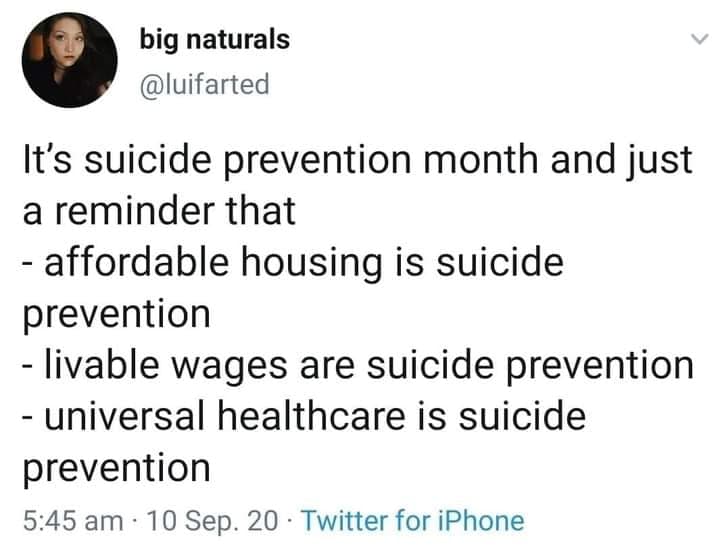- 0432 306 902
- dan@amplifyfitness.com.au
- MON-SAT: 6:00 – 19:30
- 0432 306 902
- dan@amplifyfitness.com.au
- MON-SAT: 6:00 – 19:30

I’ve been writing about a lot of serious issues recently, most of which are broader in scale than the confines of the gym and business this website is dedicated to. However I’m finding that this is as good a place as any to write down the more impactful thoughts I’ve formed and this one is no exception.
It’s definitely going to be “controversial”. However it shouldn’t be. That’s part of the issue.
I was speaking to a client recently who had mentioned that whilst she had been going well, in her circle, things hadn’t been going great and more than one person she knew had committed suicide. We chatted briefly about how much that sucked and how neither of us really think that there is enough being done about it. Without putting further words in her mouth, my opinion is that what is being done only peripherally benefits those who need the help and is far more about being seen to be “doing something” than actually doing something meaningful. If you ask me in person my view will be much more scathing than that.
Mental health, mental ill-health and mental illness are definitely on people’s mind these days as things to be concerned about. Particularly in younger generations who seem to be significantly more prone to giving to mental health charities. Resources, awareness and the almighty dollar have been pouring into this field exponentially in the 21st century. At least in Australia, however, it isn’t really helping. Suicide is often seen as the ultimate affliction upon a person ravaged by mental illness. I see a multitude of problems with this but let’s deal with one thing at a time.
Firstly, in 2018, in Australia, 8 people successfully took their own lives – out of 178 attempts – per day. This is more than 2.5 times the national road toll in the same period. It is the leading cause of death in people aged 15-44 and over three quarters of these deaths (76%) were male. It is worth noting that roughly 2/3 of hospital admissions for self harm are from females. To widen the statistics, a survey in 2007 found that 1 in 8 (13%) Australians aged 16–85 had had serious thoughts about taking their own life; 1 in 25 (4.0%) made a suicide plan, and 1 in 33 (3.3%) had attempted suicide – bear in mind this study was based on self reported responses and as such it could be inferred that due to stigma and general discomfort talking about suicide, the actual rate is likely higher. Standardised suicide deaths in Australia have increased from 2009 to 2018 by 13%. For those that care, in lost work hours alone a report in 2018 showed the cost in Australia to be just under 13 billion dollars.
Almost half the adult population experiences mental-ill health at some point in their lives. This is sadly not a surprising figure at all, in fact if anything it is surprising in how low it seems. It is increasing though and forecasters expect it will only continue to increase. You may suggest this is because we are discovering more about the brain and mental health and how to diagnose and recognise conditions. I agree that we are much better equipped to recognise the behaviours and consequences of mental ill-health but would suggest this is not the cause of the skyrocketing instances of its occurrence.
So where is the disconnect? Why do we have an (acknowledged) mental health crisis? Why are there more (and younger) people self harming and taking their own lives when the amount of resources we are pouring in have been increasing exponentially? I have three suggestions as to why this is, and one possible “solution”:
Reason One: I will not go into great detail on this as it is a topic for another time but society is fractured. We have increasingly become technological nomads. We are being systematically herded into an us vs. them dynamic. Rich vs Poor, Indigenous vs. Non-indigenous, Men vs. Women, Boomers vs. Millennials, Liberal vs. Labor, Conservative vs. Progressive. We are bombarded with hate and fear and everything divisive and designed to keep us angry, scared and suggestable. We spend our waking hours bombarded with the evils of the world, the things we don’t have and what we “lack” as successful humans. And it’s lonely. Loneliness is a modern day epidemic all of its own and deserves a blog all for itself but suffice it to say that loneliness has as much impact on premature death as obesity. The combined affect of this on any person’s mental health is likely to be incredibly unhealthy, if not catastrophic.

Reason Two: Instead of reducing and removing the stigma around mental ill-health we seem to be increasing it. Or, to put it a different way: It’s OK to be kind-of not OK, but if you’re really not OK then that’s still kind of like, yucky. We have, collectively, seem to become quite accustomed to being in poor mental health and the acceptance of this I would put in equal parts down to stigma reducing campaigns by charities and big brands and, unironically, memes. However it is still highly problematic to admit to anyone but your closest friends and family (and maybe not even to them) that you have self harmed, attempted suicide or have suicidal ideation. This is when it gets yucky and people begin to walk on eggshells around you as if somehow now you are a different person to the one they know.
We do not like change or difference and the fundamental belief that someone who has wished they were dead to the point of acting on it has a different brain than any of us is a real problem. And under no circumstances is it safe, even in almost any therapy, to admit you would commit suicide if you could, or are planning to. The trigger is having a plan. Admit that to the wrong person and you will wind up in the hospital, possibly taken there under duress by police, paraded in front of who knows how many “normal” people and subjected to incalculable trauma and damage to your reputation (even if it is only perceived as that by you) while you are “helped” until you say enough correct responses to be given your freedom once more.
This is a fundamentally horrific approach to helping someone (especially high functioning) who wishes to end their life. This is where the controversy comes in. Suicide is not irrational. Desperate? Yes. Tragic? Yes. Avoidable? Yes but not the way you think it is. Suicide is not irrational. It is a final measure of control a person can have over their own life. A solution to the unending agony of their own existence. It is not selfish. It is not the weak way out. It is a tragedy, but it is also a brave action by a person to help themselves in the only way they can possibly imagine. When a person attempts to take their own life, to them, there are no other options. It is their only solace from the unrelenting and uncontrollable agony of existence. You not understanding does not change the reality that exists for that person. Suicide is not bad. Suicide is a person expressing the only control they have to bring peace, to solve their problem. What is bad, is that in 2020, with the insurmountable wealth and resources we have in this country, we can continue to allow more people year on year to end up in a position where suicide is their only option.
If you cannot understand how the “help” we provide is so damaging, then we need to have a different conversation. ScoMo’s empathy advisor has a lot of work coming their way. Suicide prevention is bandied around a lot. Nothing we’re told is suicide prevention really is. We should more accurately describe what it is. It’s treatment. It’s control. By the time the suicide prevention team comes along, much of the time it is far, far too late. This suicide cannot be prevented, only treated and controlled. I’m not talking about someone with mental ill-health, I am talking about a person who has attempted suicide. I am not advocating that we do nothing, but what we are doing is statistically proven to be not working. Which brings me to point number three.
Reason Three: Suicide prevention is not what we are told it is. My opinion is that the current model of suicide prevention is the equivalent of locking someone outside in a snowstorm and then eventually walking out to them and seeing their black fingers and giving them a warm blanket. It’s too late, the gesture itself becomes even more inadequate when you see that we are focusing everyone on making sure the blanket is really big and warm and everyone knows about the blanket and that it’s OK to need a blanket but no one seems to be bothering to open the door to let the person in out of the cold. What we are focusing on is statistically not creating less suicide in Australia, the rate is going up. Why are we focusing on blankets for people with frostbite when we should be focused on helping everyone get out of the snowstorm so they can warm their own hands up?
To get more specific with the analogy, one of the primary goals of most charities you come across and in posts shared by people is to “raise awareness”. I could not hate this term more. At best it’s ignorant, at worst it’s a selfish way to raise people’s awareness of your own virtue signalling. Raising awareness is a good play for some unscrupulous charities to make a lot of money and not really have to do anything to earn it.
The other issue I have is that we are pouring a lot of resources into telling people it’s OK to not be OK (which we’re kind of making progress with) but not actually addressing the foundational reasons why more and more people are not OK. It is similar to this: Rich person philanthropy is very in right now. The other day Jeff Bezos opened a preschool which would be free to low income earners. Hooray, what a guy! But wait…the reason there are low income earners are because he has more money than most countries and pays f^ck all tax and refuses to pay people a living wage. How about instead of opening a free preschool (tax write off), you pay people a wage where they can live reasonably? Bezos is changing his reputation, not actually doing much to help the foundational problem of wage stagnation and poverty. Much the same as cobbling together school talks and tshirts and slogans and ad campaigns to help people understand it’s OK to not be OK is not actually helping more people just be OK to begin with. We don’t need warm blankets for people if you just open the damn door.
As you can see from the chart below, mental health is the 6th most supported cause in Australia (and while the causes above it will peripherally help with helping people to be OK to begin with, especially homelessness – once again missing the point of why we have so many homeless people who need donations as ironically this ranks 6 places higher than poverty alleviation) the chart also shows that the causes which I suspect to be the most foundational to helping people be OK to begin with are way down at the bottom. It’s good that domestic violence, poverty alleviation and disability and medical support seem to be fairly well supported but it still is worth highlighting that all of these foundational causes which help us just be OK to begin with are below the cause which is getting everyone to understand that it’s OK to not be OK. Which brings us to my view on how we address things:

Treat the problem, not the symptom: I think by now you should have a strong sense of where I might be going with this. My view is that we are approaching the problem from the wrong end. To briefly detour into my actual field, when someone rocks up at Amplify and wants to train for whatever reason, the primary goal I have (before working on theirs) is to make them pain free and able to train safely. A lot of people are in pain when they seek a trainer, and I would estimate that somewhere around 70% of those people who are experiencing pain are suffering from back and neck pain. It’s also true that most of those people have been to chiro, physio, massage, osteo, voodoo doctors, gypsies and anyone else they can think of to help alleviate it. Another truth is that if they haven’t found the right professional whoever they have seen will attend to the sore area, alleviate the pain and the client will walk out happy and then be back (haha) in pain the next day. This is because the symptom was treated and not the cause. In so many cases I have analysed the clients posture, stance and gait and determined that there was an imbalance closer to the ground and we have worked on stretching and releasing certain muscles and strengthening certain other muscles – normally in the calves and feet and up into the glutes – and in a lot of cases instantly and in all cases over time, the pain in their back has been alleviated…and stayed that way. I’m not some super genius at all, I have just been taught by a number of very proficient rehab therapists to look for the root cause of the problem and not to simply treat where the pain presents. It’s not really a revolutionary concept but it is not as widely applied as it should be.
This is the exact same approach we should be taking to suicide prevention. Suicide prevention isn’t some weird shorts bumper sticker or glibly asking RUOk? Suicide prevention is systemic and should be a constant throughout every individuals life.

Equality not just in spirit but in law for minorities (indigenous, women, LGBTQI+, people with disabilities); governance of and holding to account big tech companies; allowing renters to have pets; wealth redistribution; meaningful, drastic and lasting action on climate change; extinguishing any vestiges of systemic racism; guaranteed access to education and technology; making sure every human that comes into this earth knows what being truly loved is; all of this is what real suicide prevention looks like. Suicide prevention must happen on a socio-political and global scale to be truly effective but just as importantly it must happen in the heart of every single person at the same time.
If you’re doing it right, suicide prevention is the skin you wear every day. I said it in my last blog and I will probably say it every blog forever; we must hold our leaders to account and expect and demand better from them but while we do that, we must also, with every endeavour:
Try. Not.To.Be.A.Dick
#amplifyfitness
#fitnessfunfriends
#trynottobeadick
If you think I’ve made a decent point or two and wonder what you can do instead of donating to “raise awareness” consider the following:
– Join your union (https://www.australianunions.org.au/join/begin-join/#/)
– Find and support a lobby group that resonates with causes you care about, for example: https://www.equalityrightsalliance.org.au/
– Contact your local MP’s (in Hobart a good person to reach out to is Josh Willie – https://taslabor.com/people/josh-willie/)
– Switch your super to Future Super (https://www.futuresuper.com.au/)
– Change your search engine to Ecosia (https://www.ecosia.org/?c=en)
These are all steps you can take that are relatively simple and easy and have real impact on the quality of life of all of us.
Sources:
https://www.webmd.com/balance/news/20180504/loneliness-rivals-obesity-smoking-as-health-risk
https://www.aihw.gov.au/suicide-self-harm-monitoring/summary/suicide-and-intentional-self-harm
https://futuregeninvest.com.au/wp-content/uploads/2019/10/Australias_Mental_Health_Crisis.pdf
https://mccrindle.com.au/app/uploads/2018/04/AustralianCommunityTrendsReport_McCrindle_Sept2017.pdf